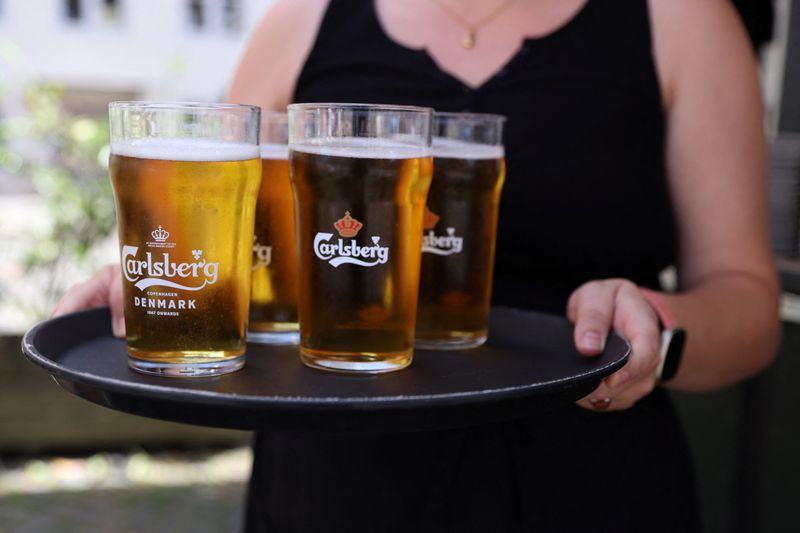By Jacob Gronholt-Pedersen and Emma Rumney
COPENHAGEN (Reuters) -Danish brewer Carlsberg (CSE:CARLb) sold more of its premium beer brands and saw price increases in all its main markets during the first quarter, although beer drinkers in China continued to hold back, its CEO said on Tuesday.
Carlsberg, the maker of brands such as Kronenbourg 1664, Tuborg and Somersby, reported first-quarter sales slightly above expectations on Tuesday and said sales of premium beer brands grew 8% in the period.
While Carlsberg grew its market share in China and increased volumes by 5%, the overall beer market in the country was flat as consumer spending remained subdued, Carlsberg CEO Jacob Aarup-Andersen said.
"To be very direct, (Chinese consumers) are not buying more beer," he said, adding Carlsberg grew market share but overall industry volumes were flat.
The number of people travelling over the huge Lunar New Year celebration was at record highs, but consumer spending per person remained below pre-COVID levels.
Trading conditions in China had not worsened, but they had not improved either, he said.
Carlsberg's total volumes were up 2.1% in the period, mostly driven by Asian markets.
"We've had a solid start to the year with volume and revenue growth in all three regions," Aarup-Andersen said, referring to Carlsberg's main markets in Western and Eastern Europe and Asia.
"We're particularly satisfied with the growth of our premium portfolio and the volume and revenue growth in Asia, both of which are important strategic growth drivers for the group," he said.
Sales rose 4.4% to 17.13 billion Danish crowns ($2.46 billion), compared with 17 billion forecast by analysts in a poll gathered by the company.
The company on Tuesday launched a new share buyback programme of 1 billion crowns that will run until Aug. 9.
The company still expects organic operating profit this year at between 1% and 5%.

Shares in Carlsberg traded 1.7% lower at 0725 GMT. They are up 11% this year but remain well below peaks before Russia invaded Ukraine in February 2022. The company took a $1.4 billion writedown on its Russian business that year.
($1 = 6.9708 Danish crowns)